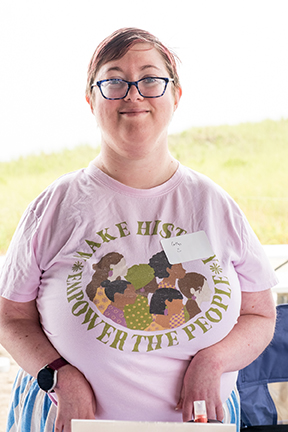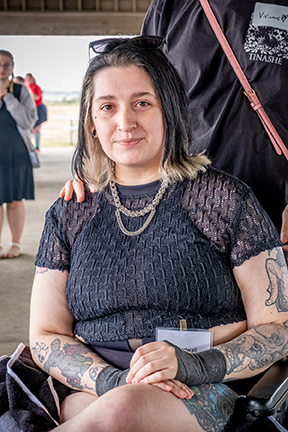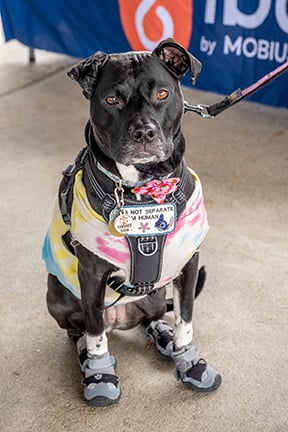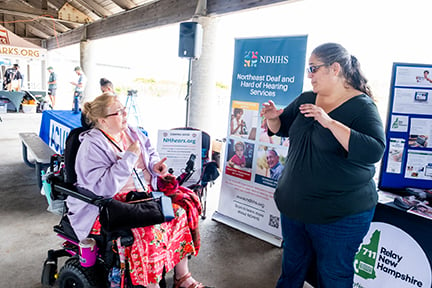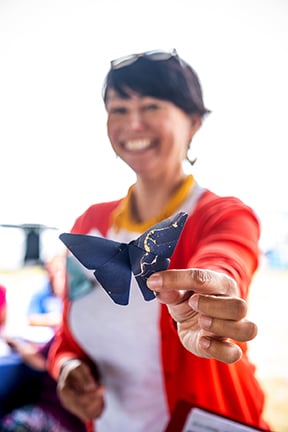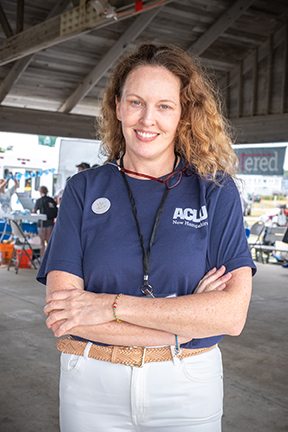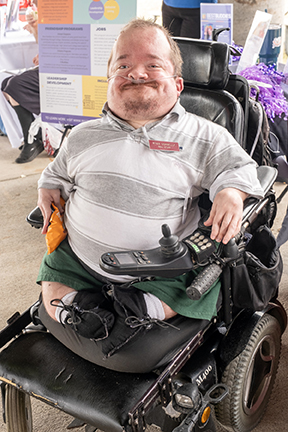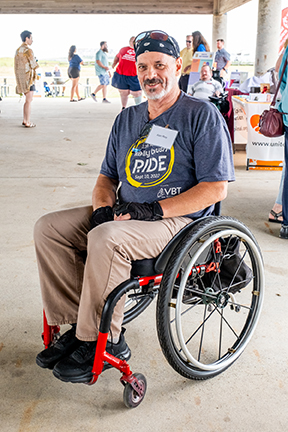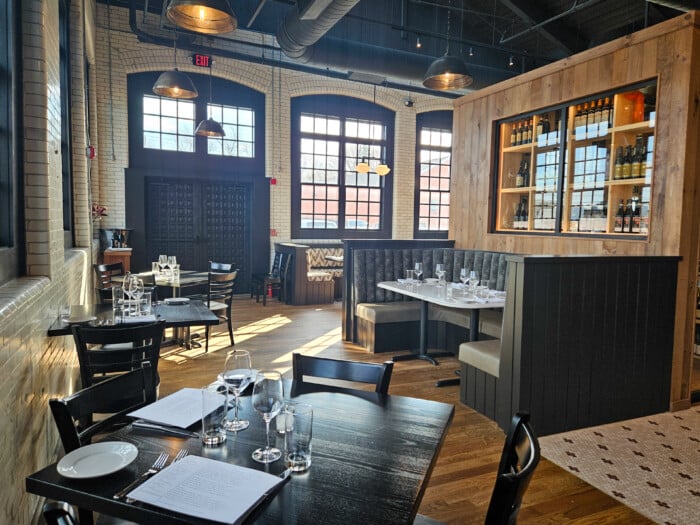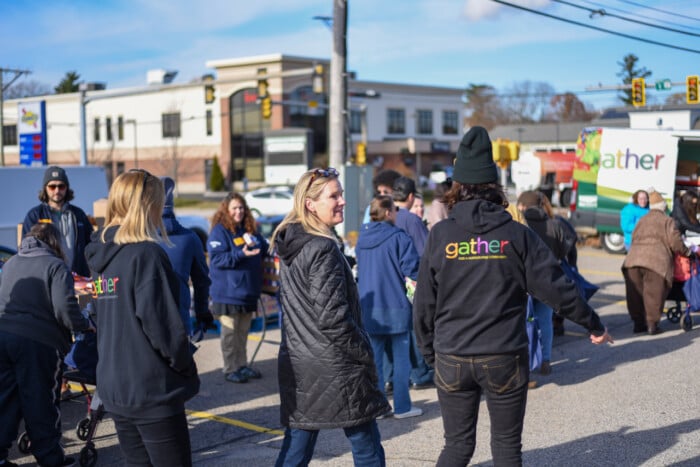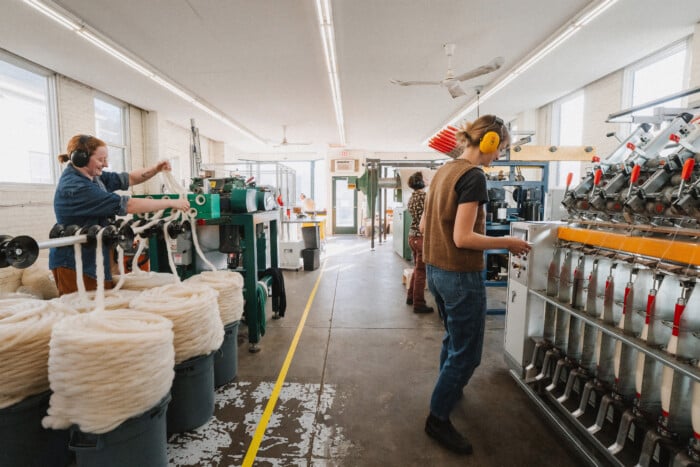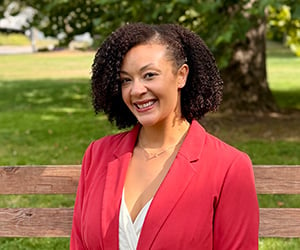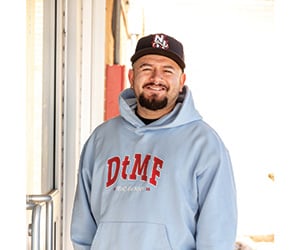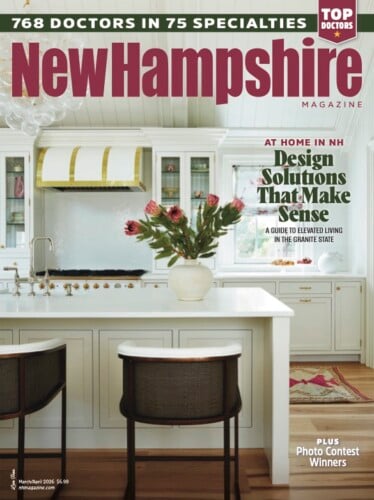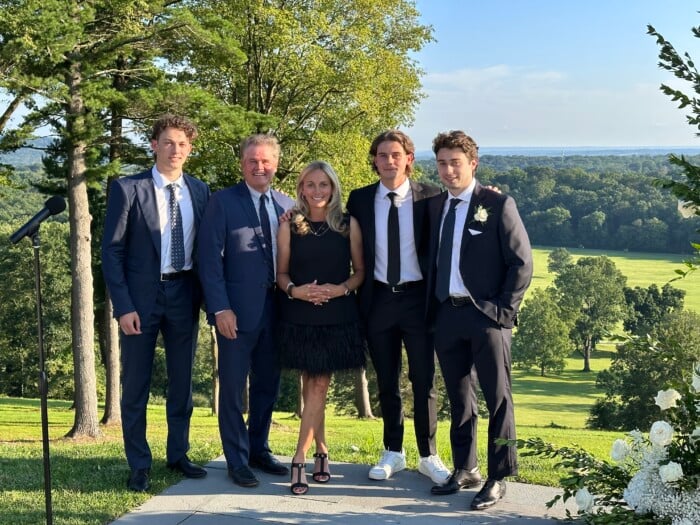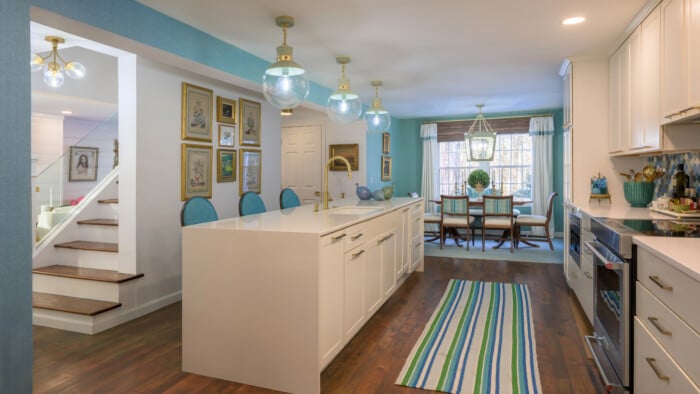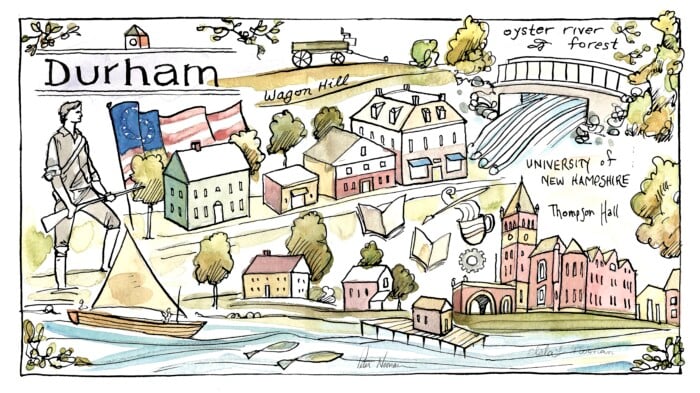Breaking Waves, Breaking Barriers
First BeachAbility event at Hampton Beach State Park a splashing success.

Ky Hedwall of Nashua is wheeled down to the ocean by their partner, Vivienne Reynolds, during BeachAbility, an event organized by the American Civil Liberties Union of New Hampshire at Hampton Beach State Park in July, to demonstrate the importance of equal access to beaches, parks and other natural resources. Photo by Suzanne Laurent
HAMPTON– Ky Hedwall of Nashua was wheeled down to the water’s edge at Hampton Beach State Park by their partner, Vivienne Reynolds, in a special wheelchair designed to navigate rough terrain.
Using a customized walking stick for balance, Hedwall, 27, stood up and tentatively made their way into the water, letting it lap at their feet, relishing in the sensation they have loved since childhood.
Hedwall was participating in BeachAbility, a program offered in July by 20 New Hampshire disability advocacy organizations, including the American Civil Liberties Union of NH (ACLU).
It was the first year ACLU connected NH State Parks with the public to have people with disabilities enjoy a day at the beach. About 100 participants had signed up for the event, according to Katherine Harake, regional campaign manager for ACLU-NH.
“BeachAbility was a resounding success,” Harake said. “It directly connected New Hampshire State Parks with the public on how to create more accessible, inclusive beaches across the Seacoast.”
According to NH State Parks, they were very happy with the turnout, and the input they received was invaluable, Harake added. “They said that it also made them think of ways to make state facilities more accessible for employees.”
One speaker, Jenn Cowell of Antrim, suffered a spinal cord injury, at the age of 16, ironically while in the ocean.
“I love the beach,” said Cowell, who works at Granite State Independent Living, a statewide nonprofit organization whose mission is to promote quality of life with independence for people with disabilities.
“I tell people to live their best quality of life and not to let their disability hold them back,” Cowell said. “We need our beaches and state parks to be accessible for all.”
Hedwall, who spent some of their childhood on the beaches of San Diego, California, was diagnosed in their teens with Ehlers Danlos Syndrome (EDS), a hereditary connective tissue disorder that affects the connective tissue that supports and protects other tissues and organs in the body and results in joint pain, instability and hyper mobility. This causes joint dislocation and subluxations (partial dislocations).
“I also have a bone disease called fibrous dysplasia. That is not hereditary,” Hedwall said.
Fibrous dysplasia is a disorder where bone is replaced by fibrous tissue, leading to weak bones, uneven growth and deformity.
“I had a large area of my left hip and femur affected by this, and I had reconstructive surgery when I was 16,” they said. “And I had a few more of the same surgery to try to correct this over the years.”
Their joints healed very poorly after these surgeries, and Hedwall started to struggle with mobility, and the medical team wasn’t sure why.
“I had a few physical and occupational therapists mention EDS to me after they evaluated me and seeing there was a family history, but when I brought this information to my medical team at the time, they did not believe it or want to look into it further,” Hedwall said.
They faced a huge number of barriers to getting a diagnosis when they were younger for several reasons.
“Firstly, young, chronically ill people often are not believed by medical professionals or insurance — ageism is a huge barrier to rare conditions like EDS being caught and treated early, and often people don’t receive a diagnosis until the problem has significantly progressed and disabled them,” Hedwall said.

Ky Hedwall of Nashua steps into the ocean at Hampton Beach State Park during BeachAbility.
“I am an ambulatory wheelchair user meaning I can walk and stand, but use various mobility aids to help me do that due to my hip dislocating when I walk, low energy levels, joint paint, and fainting spells,” they added.
Hedwall said they also faced discrimination in the workplace due to managers assuming they were faking because they were “too young to be disabled.”
They are currently employed as a case manager/service coordinator at Gateways Community Services.
The BeachAbility event was amazing,” Hedwall said. “It was so amazing to see people in the disability community come out to speak about their experiences and to advocate for change for a more accessible world for us and for people with disabilities that come after us. It’s not just about going to the beach for a day; it’s about making more beaches and public places more accessible.”
“Events like this and the Neuro Queer disability pride event I attended in Dover in July give me a sense of community and hope for the future,” Hedwall added.
“I’m so excited for this article to give this event the spotlight it deserves, and honored my voice can add a personal perspective as to why it is so important the world shifts its view of people with disabilities and start making real change towards a kind, accessible and inclusive future for everyone.”
Harake said she received encouraging positive feedback from the BeachAbility event.
“From the feedback I received, most organizations appreciated the fellowship, which fostered connections and sparked future collaboration,” she said.
“It raised awareness for barriers such as for the hard of hearing and visually impaired, as well as the incorporation of sister technologies to access nature. The event also facilitated direct dialogue with community leaders who showed up.”
In addition to music and art, visitors had the chance to experience various mobility aids on the sand, which they hadn’t done in years.
“One woman who was visiting the beach that morning stopped by and told me that her son, who was a quadriplegic and who passed away recently, said that he would have loved to go to an event like this,” Harake said. “She then offered to volunteer for future events. Ky (Hedwall) also told me that they would love to attend future events and offered to help out any way they can.”
Given the positive response, many would like BeachAbility to become an annual event, and some even suggested a TrailAbility event in the fall.
“We all want to create an inclusive community for people with disabilities that ensures that they are valued and integrated members of society,” Harake said.” Equal access to New Hampshire’s beautiful nature is very important.”
This article is featured in the winter 2024 issue of 603 Diversity.
603 Diversity’s mission is to educate readers of all backgrounds about the exciting accomplishments and cultural contributions of the state’s diverse communities, as well as the challenges faced and support needed by those communities to continue to grow and thrive in the Granite State.
More stories from 603 Diversity.
